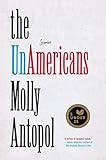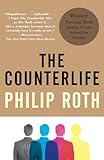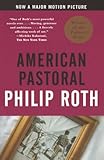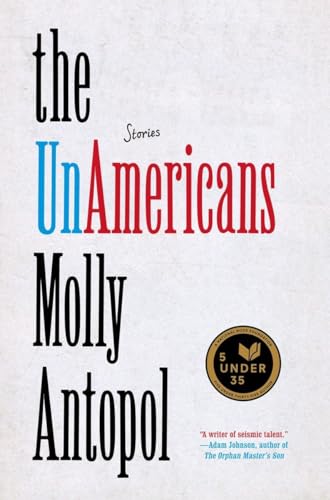 A sure-fire way to irritate a short story writer is to ask if her stories could be turned into novels. But the stories in Molly Antopol’s debut collection, The UnAmericans, have such a deep sense of place and character, that it’s hard not to see them as novels in miniature. They are exceptionally diverse, set in the U.S., Europe, and Israel, and informed by Antopol’s lifelong interest in history and politics. Antopol estimates that each story took a year to write.
A sure-fire way to irritate a short story writer is to ask if her stories could be turned into novels. But the stories in Molly Antopol’s debut collection, The UnAmericans, have such a deep sense of place and character, that it’s hard not to see them as novels in miniature. They are exceptionally diverse, set in the U.S., Europe, and Israel, and informed by Antopol’s lifelong interest in history and politics. Antopol estimates that each story took a year to write.
This past fall, Antopol received the National Book Foundation’s 2013 “5 Under 35” award, which annually recognizes promising young writers. (Past winners have included Téa Obreht, Fiona Maazel, and Karen Russell.) Jesmyn Ward, who selected Antopol for the award, said of The UnAmericans: “It’s so rare to read a story collection — let alone a debut — that is this big, ambitious and brilliantly realized.”
Antopol is a former Wallace Stegner Fellow who now teaches at Stanford University. I spoke with her last November, when she was visiting New York to receive her “5 Under 35” award. We met in a coffee shop in Cobble Hill, Brooklyn, where we shared a croissant and spent an hour discussing her new collection, the joys of research, her complicated admiration of Philip Roth and her simple love of Grace Paley.
(The interview had been condensed and edited.)
The Millions: This book is informed so much by your family history. Can you tell me a little about your background?
Molly Antopol: My family from way back is from a village called Antopol in Belarus. I come from this family of storytellers and they would tell stories about everything in their lives and so the stuff that I mostly heard about growing up, probably because it was the most present, was their involvement in the Communist Party, and what it was like for my grandparents to live under that much surveillance and to be arrested and to be on list after list. And so those were the first stories I was interested in, before I was even aware of what I writing about thematically.
When I was in Israel, I wound up at this party where I met this woman from Antopol, who had known my family way back. I had never known that family and never known those stories from this village. She led me to this enormous book that basically sort of mapped out the village of Antopol, this place that was sort of mythic to me, and I was able to fill in a lot of spaces. And once I knew I was seriously working on these stories I just started applying for every grant I could get to Eastern Europe. Whenever I could I would travel and do research.
TM: When did you know you wanted to be a writer?
MA: Probably when I was a kid. My mom has all these stories of me being a really nerdy kid. I was an only child and I would write my way into books, like I would imagine that I was a sibling in the books. But I think I just never thought anyone could be a writer. I knew no writers growing up. It seemed like this total pie in the sky thing. It would be like being an astronaut. I really thought I wanted to be a psychologist or a social worker. So when I was in Israel — actually, before I started living in Israel — I was doing union organizing. That’s very much like the family business. Everyone in my family was doing political stuff so it just felt easy to slip into that. I was working for United Farm Workers and I thought I would do that and just write on the side, but every time I got a little more room to write, whether it was through a fellowship or graduate school or whatever, I just found I wanted all that time, and so it just sort of ballooned out that way.
TM: And so how did you decide to write fiction as opposed to nonfiction?
MA: I write some nonfiction. I’ve done some radio stuff and I really like writing essays. But even as a kid fiction was what I loved to read, and even as a kid it was stories. I think I’ve always had this sort of deep love for short stories and so I’ve never really questioned it. I’ve had so many people say, “Oh, could you turn this story into a novel?” Because everyone wants to ask every story writer that. But to me, stories are this perfect beautiful form.
TM: I loved your stories. I’d like to describe them as miniature novels, but that’s not it exactly. They’re very compressed with a lot of exposition, but it doesn’t feel like exposition, it’s just pure storytelling.
MA: Thank you. That was something I worried about, because I think that, especially since I’d been in these writing programs, oftentimes the models are these 12-page, single-scene stories where everything takes place in a kitchen or a car ride, and I really love those stories and I can’t tell you how many times I’ve tried to write that story, and I just can’t. I had this real fear, for years, that I wasn’t doing it right. That they weren’t novellas or these tight poetically compressed stories, so what were they? Honestly — and this is advice that I give my students but it took years to take it myself — you have to go to your favorite writers and let their work teach you. I started to read Alice Munro, and her stories are long, and there’s so much exposition. Or Deborah Eisenberg or Edith Perlman. There’s this group of people who take their time. And that was really helpful to me.
TM: You’re working on a novel now. How is it different from writing short stories?
MA: So far it’s been really enjoyable — although everything kind of is for me in the beginning. I like getting into the world. But I do feel like it’s coming naturally because I’m allowed to move into every piece of backstory that I want to.
TM: And what’s the novel about?
MA: It’s called The Afterparty and it’s set in Israel right after the fall of communism. It follows a dissident from Eastern Europe who is being groomed to become this political celebrity in Israel, because of what had happened in Europe. It’s about how that level of ambition is affecting his wife and his family.
TM: What inspired it?
MA: I have no idea! I never have any idea what inspires anything. I read a lot about politics and have been interested in it. But at the same time I’ve been very aware of not wanting to become a “political writer” that would be in any way didactic. I love the research. There’s a part of the book where a member of the Israeli secret police is following this guy because he’s coming from Russia and they were very suspicious of that. And so I’ve been interviewing people from the Israeli secret police and that’s just been totally fascinating.
TM: You do a lot of research, all different kind of research, but when you finally sit down to write the story, how do you use it?
MA: The way I do it, and I don’t know if this is right — and I read a ton of author interviews for advice, because I’m always like, someone’s going to have the magic key and then I won’t have to do as much work — but the way that worked for me, even though this takes a long time, is that I have to completely immerse myself in the world. That means watching all the films, reading as many books as I can, everything that I can find. And I read it all, but I don’t write about it or take notes. Once I’m finished, I try to take a break from it and then a couple weeks later the characters will start to percolate in my mind. By then I have the environment in my mind, so I can think about the characters and the situation. I want to know who is in the most complicated place in the situation and then I’ll see how the environment is informing their lives.
TM: It’s kind of like an actor’s process, a little bit.
MA: When a story is working, it feels like method acting. And I can tell when a story isn’t working — and those are the ones that didn’t make it into the book — because I’m still thinking so much more about the situation than the person. If the people aren’t living with me, then it doesn’t work.
TM: How did this collection come together?
MA: It was interesting. I didn’t want to finish the book until I felt like I had written from the point of view of men and women, young and old, American, European, and Israeli. It felt important to me as a writer to feel like I could do that. There are a lot of writers I really love who kind of have the voice that comes back over and over, and I admire that, but for me, that wasn’t the kind of book I was interested in writing. Some of the stories that didn’t make it [into the collection] felt like they were too much in companionship with another story.
I also didn’t have any thematic ideas while I was writing. I just kept trying to write really different stories and to try different things. And I was like, oh my god, my book is all over the place and I don’t know what to make of it! And then Tobias Wolff — he’s been my workshop teacher at Stanford — said, “Oh, these stories are all about politics.” It was so basic to him. But it had never occurred to me. Once I had that in mind I was able to move forward. I realized I was obsessed with the idea of legacies, the idea of devoting your life to something that means everything to you, but what happens when history changes and it has lost relevance? What does that do to everyone around you? And once I figured that out, I noticed it was happening in every story, even the contemporary ones, and that felt exciting, like it was a cohesive book.
TM: Were there any stories that gave you particular difficulty?
MA: All of them! I feel like whenever I talk to older writers, they say, “Every writer gets that gift, you get a story that just comes to you fully formed” and I’m like, that’s bullshit, I’ve never had that! Every one of those stories, probably from start to finish, was at least a year. One that was particularly difficult was the story, “A Difficult Phase” about the Israeli journalist who dates the recently widowed guy. I think what was hard for me was that the character was the closest to me, just in the fact that she was a youngish writer. And so I think I was just sort of sorting through a lot of my own stuff in that story. Which made it harder to write than some of these others where I could have a more omniscient sense of everything.
TM: When did you know the collection was complete? What was your road to publication?
MA: The book took me ten years to write. For a long time, I wrote with blinders on. I didn’t send my stories out and tried not to think about how the collection would come together. I just focused on trying to get each story to work the way I wanted it to.
To back up, I had started these stories when I was in grad school living here. And then after graduate school I was still living in New York and I was massively broke. I think I had four jobs. Every time I’d get on my computer I’d be on Craig’s List looking for the next job, never writing. I was also teaching ESL at night. So everything in my life was just trying to figure out how to live in New York but not really how to be a writer. It was really fun, but it just wasn’t productive for me. Once I realized that, I thought about moving back to Israel because it’s cheaper there and I had enough job contacts. But then I found out I got the Stegner.
So I thought, OK, this is amazing…this is such sacred time. I tried really hard to tune out any noise so I could focus entirely on the book I wanted to write, regardless of whether or not anyone would ever want to publish it. About three and a half years ago I showed an agent, Bill Clegg, some of my stories. I had only about a hundred pages ready to show him. That he wanted to work together was incredibly gratifying. Every six months or so, I’d send him a new story, and he’d give me comments and we’d go back and forth. He read my stories so carefully and thoughtfully, and didn’t seem concerned at all that he’d spent years essentially working for free.
TM: What does it feel like now to be honored as a “5 Under 35” nominee, and with your book coming out? What does it feel like to have the blinders off?
MA: It’s really great. To be honest, I think it’s just that writing is so lonely and this book was just so deeply personal. It was that book that I knew I had to write. And I kept telling myself that as I was working on it, because I wasn’t convinced that anyone would publish a bunch of historical stories about communists. I just kept telling myself, well that’s okay. I had so many talks with my friends where I said that’s okay, I have to do it for myself and not worry. And so the fact that it’s coming out and that people are interested is the most extraordinary feeling.
TM: Let’s talk a bit about influence. I recently read a book about Philip Roth’s work and I was wondering if he is an influence of yours.


 MA: I love Philip Roth. I’ve read everything he’s ever written. I completely agree with what a lot of people say about his depiction of women in some of the books. I mean, there have definitely been books where I think, wow, this is such a phenomenal book except for the fact that you clearly have an axe to grind and you’re pushing it through this specific character. That can be disappointing. But I’ve admired him since I first wanted to be a writer. He’s a writer that’s been in my head the whole time. He’s so idea and character-driven, so we have such a sense of politics and history and the society around the characters, but we’re also in the character’s head in the same time, and it’s just happening simultaneously. He’s also able to come up with these alternate realities for our society that I just think are just mind-blowing. I love The Human Stain, that’s my favorite, I love American Pastoral, I love The Counterlife. Those books are going to sit on my shoulders for the rest of my life. Even the ones that I love a little less, I’m still like, wow, who writes sentences like this?
MA: I love Philip Roth. I’ve read everything he’s ever written. I completely agree with what a lot of people say about his depiction of women in some of the books. I mean, there have definitely been books where I think, wow, this is such a phenomenal book except for the fact that you clearly have an axe to grind and you’re pushing it through this specific character. That can be disappointing. But I’ve admired him since I first wanted to be a writer. He’s a writer that’s been in my head the whole time. He’s so idea and character-driven, so we have such a sense of politics and history and the society around the characters, but we’re also in the character’s head in the same time, and it’s just happening simultaneously. He’s also able to come up with these alternate realities for our society that I just think are just mind-blowing. I love The Human Stain, that’s my favorite, I love American Pastoral, I love The Counterlife. Those books are going to sit on my shoulders for the rest of my life. Even the ones that I love a little less, I’m still like, wow, who writes sentences like this?
TM: Who are some of your other influences?
MA: Grace Paley is my favorite writer. My love for her is deep. I grew up in this really political home and I remember when I read her for the first time in college, I had never read anyone who wrote about kitchen-table politics, about how it happens in the home and goes out into the neighborhood and the world. And also, I had never known of a writer who writes about the role of women in these supposedly progressive places, and she does it in this gentle and really loving way. James Baldwin is another favorite writer. He was big for me because when I first started writing I was worried, a little bit, about being sappy and sentimental and overly emotional and so I was trying to write these cool stories even though it’s totally not my personality at all. And then when I read him I thought, he’s writing just what he needs to write, it’s just pure emotion, it’s passion. And that alive-ness of his writing was so inspiring to me. Every time I’m stuck, he’s the one I read, and I think, this is what it means to write: to put everything on the table and just write about what you really care about.




